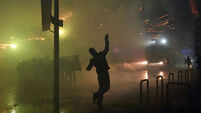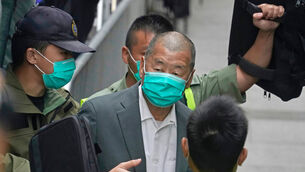China mounts new attack on Dalai Lama
Chinese state media today accused the Dalai Lama of slamming the door on talks over Tibet’s future, an apparent response to rising international calls for Beijing to negotiate with Tibet’s exiled Buddhist leader.
In a lengthy article, the Xinhua News Agency cited past actions and statements attributed to the 72-year-old Nobel Peace Prize winner that it said contradicted or undermined his calls for negotiations.














